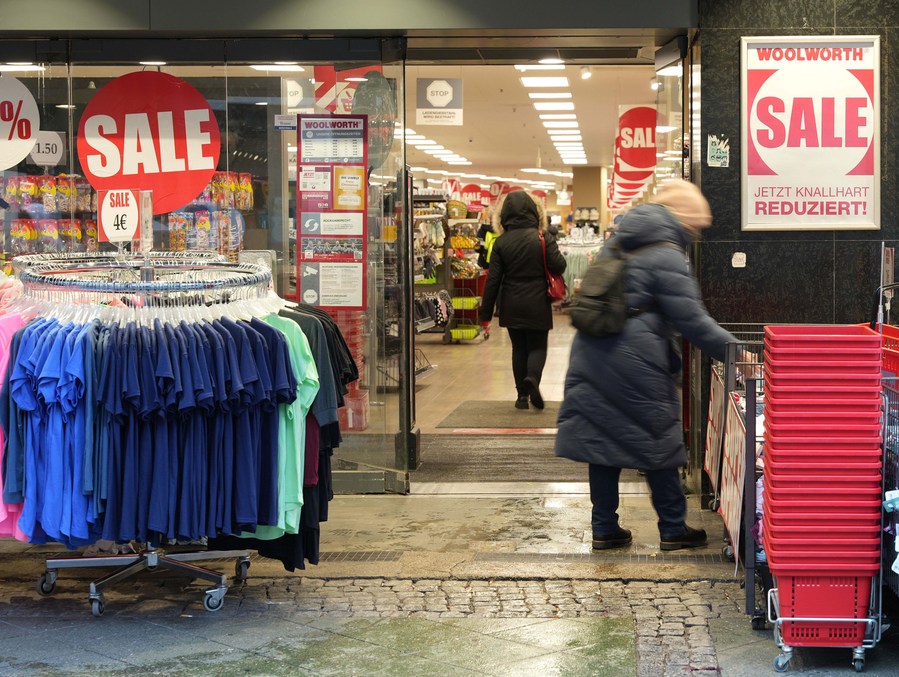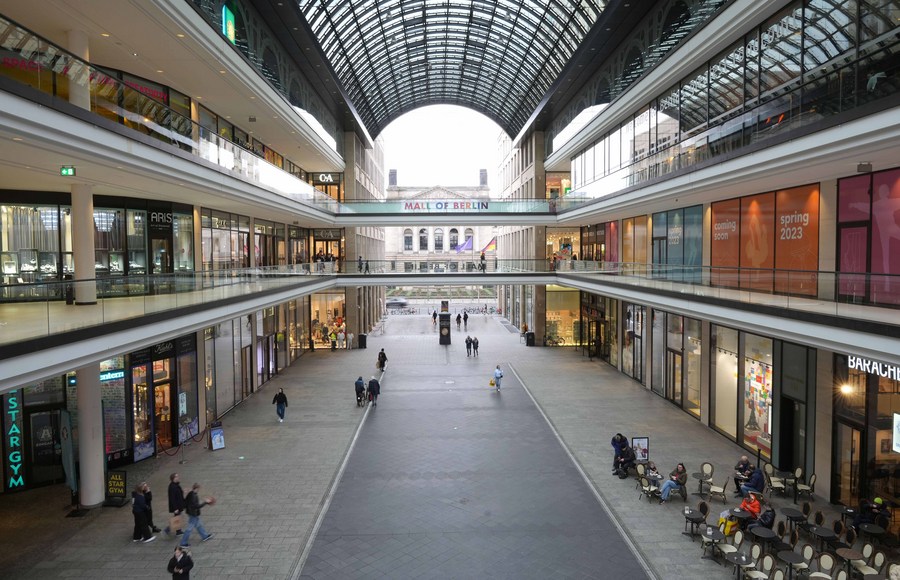
People shop at a store with discount signs in Berlin, Germany, on Feb. 1, 2023. (Photo by Stefan Zeitz/Xinhua)
So far this year, 94 fashion companies have applied for insolvency in Germany, the trade magazine TextilWirtschaft reported. The footwear industry has been hit particularly hard.
FRANKFURT, Nov. 6 (Xinhua) -- German sports retail company Signa Sports United filed for insolvency in the German city of Stuttgart late last month, becoming the latest victim in a recent wave of retail bankruptcies in the country.
The insolvent company has been running well-known online shops in Germany, such as Fahrrad.de and Tennis-Point. The application was filed by the company in the local court after its parent company Signa Group, an Austrian real estate and retail giant, refused to inject more liquidity because it did not consider the business viable, according to local media reports.
So far this year, 94 fashion companies have applied for insolvency in Germany, the trade magazine TextilWirtschaft reported. The footwear industry has been hit particularly hard.
Reno, the country's second largest shoe retailer chain, filed for bankruptcy in March this year as it failed to survive the crisis of closures.
Last year, 1,500 shoe stores, 10 percent of the total in the country, closed their doors forever, Rolf Pangels, managing director of Textile Shoes Leather Goods (BTE), said.

Customers shop at a store in Berlin, Germany, Jan. 13, 2023. (Xinhua/Ren Pengfei)
Only a few companies in the country's fashion industry have emerged unscathed from this crisis.
Peek & Cloppenburg, one of Germany's largest fashion retailers with annual sales of over 1 billion euros, ended its self-administration proceedings in late September. The company filed for bankruptcy protection in March. It was forced to restructure and cut 350 jobs at its headquarters in the city of Duesseldorf in order to survive.
Dwindling sales caused by the COVID-19-related restrictions have been blamed for these hardships.
The global supply chain disruptions, the sticky inflation in the eurozone and the conflict in Ukraine have further aggravated the problems.
The German Retail Association's (HDE) consumption barometer, an indicator designed to gauge people's willingness to purchase, started to fall sharply in the middle of 2021 and bottomed in October 2022 at a record low of 84 points.
Germany's annual inflation rate, which eased for the fourth consecutive month in October, cooled to 3.8 percent, the lowest level since August 2021, the German Federal Statistical Office (Destatis) reported last week.

People visit a shopping mall in Berlin, Germany, on Feb. 1, 2023. (Photo by Stefan Zeitz/Xinhua)
"This year, the German economy will contract by 0.2 percent and a noticeable recovery should occur in the coming year," Holger Schmieding, chief economist at Berenberg Bank, said. Despite current consumer restraint in shopping habits, private consumption is expected to increase next spring, he added. ■












